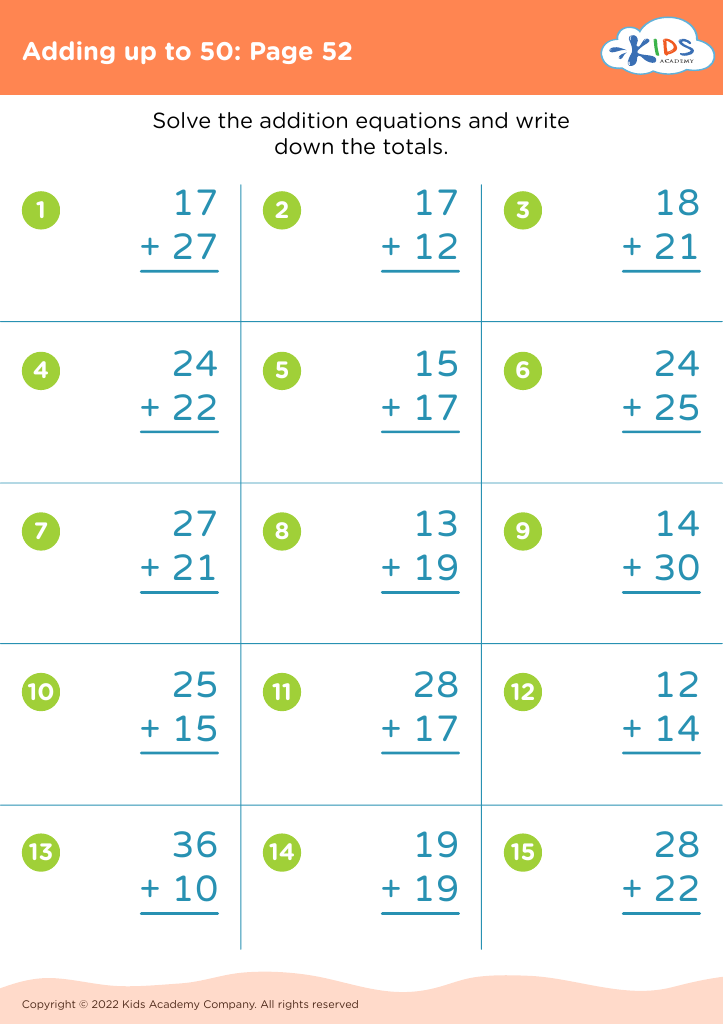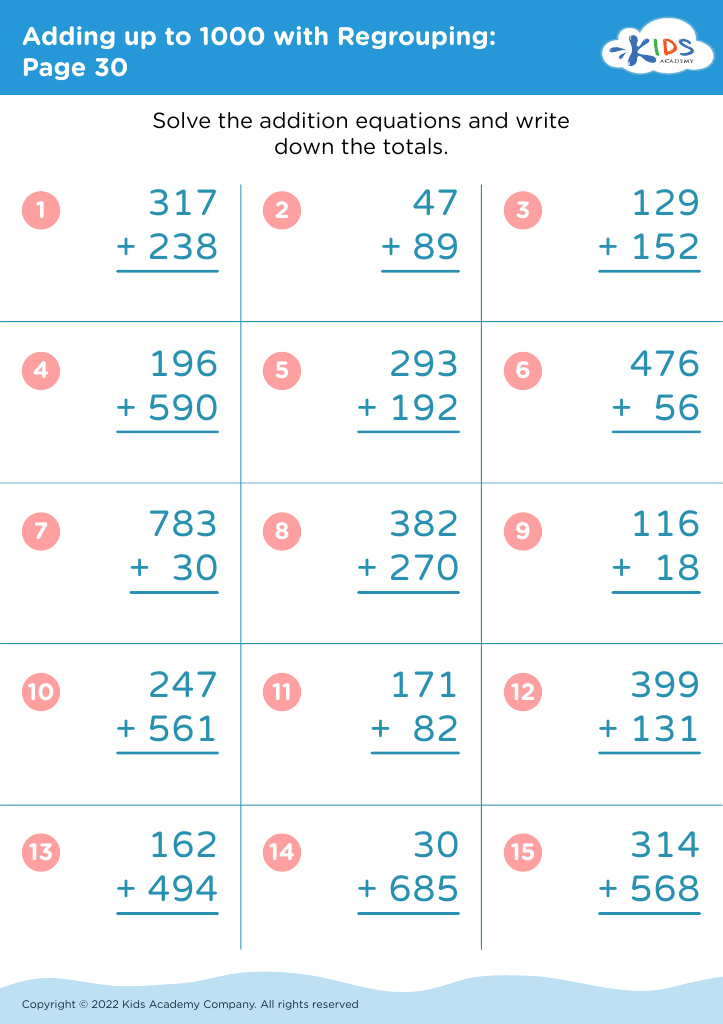Enhancing creativity Addition Worksheets for Ages 5-9
4 filtered results
-
From - To
Discover our "Enhancing Creativity Addition Worksheets" designed specifically for children ages 5-9! These engaging worksheets combine math practice with creative activities to help young learners develop a love for addition while stimulating their imagination. Each worksheet features fun illustrations and interactive challenges that encourage problem-solving and artistic expression. Suitable for parents and educators alike, these resources promote cognitive growth and build confidence in mathematical skills. Transform learning into a delightful experience where creativity meets education, empowering kids to explore numbers with enthusiasm. Start your child's mathematical journey today with our thoughtfully crafted worksheets that make learning fun!
Enhancing creativity through addition for ages 5-9 is crucial for several reasons. First, engaging young learners in creative mathematical activities fosters a positive attitude toward math, making it a fun and enjoyable subject rather than a chore. This early positive experience can lead to sustained interest and success in mathematics throughout their education.
Creative approaches to addition, such as using storytelling or visual arts, stimulate critical thinking and problem-solving skills. Students learn to approach numbers and operations from different angles, which nurtures cognitive flexibility—a key component of intelligence. Additionally, creativity encourages collaboration among peers, developing communication skills and teamwork as they work together to solve problems or create projects.
Investing in creative methods of teaching addition also supports emotional development. Children develop confidence as they explore numbers in innovative ways, embracing experimentation and accepting mistakes as part of the learning process. Ultimately, parents and teachers play an invaluable role in nurturing these skills, ensuring that children grow into adaptable, resilient learners who can tackle mathematical concepts and challenges successfully throughout their academic careers and beyond. Enhancing creativity in addition lays the foundation not only for strategies in math but also for broader critical life skills.










.jpg)














